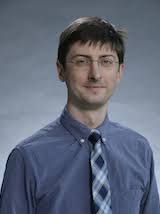Department of Experimental Surgery & Injury Repair Recovery Program 2020-2021 Virtual Seminar Series: Dr. Lachlan James Smith

“Bioactive Injectable Therapies for Intervertebral Disc Degeneration and Low Back Pain”
Lachlan James Smith, B.E., PhD.
Associate Professor of Neurosurgery
University of Pennsylvania
Tuesday, March 2nd, 2021
1:00 – 2:30 pm EST
Abstract:
Degeneration of the lumbar spine intervertebral discs is widespread and a major underlying cause of low back pain. Current treatment options are limited, and focused on alleviating pain without preserving the disc structure and mechanical function. Our lab employs a multidisciplinary approach to treating disc degeneration, combining injectable hydrogels for acute stabilization of disc structure, and stem cells to potentiate long term native tissue reconstitution. We are exploring ways of enhancing stem cell survival and performance in the disc through preconditioning prior to implantation, and sustained co-delivery of bioactive factors. To identify the ideal cell phenotype for disc regeneration, we are studying the heterogeneity of native disc cells during development and aging. Finally, to progress these therapies towards human application, we are evaluating them in novel large animal model that mimics clinically-relevant characteristics of human disc degeneration.
Biography:
Lachlan Smith is an Associate Professor of Neurosurgery and Orthopaedic Surgery at the University of Pennsylvania in Philadelphia, USA. Dr Smith began his training at the University of Adelaide, Australia, obtaining his undergraduate degree in Mechatronic Engineering, followed by a Ph.D. in Pathology working under the direction of Drs Nick Fazzalari, John Costi and Sharon Byers. Subsequently, he completed postdoctoral training in orthopaedic bioengineering at the University of Pennsylvania working with Drs Dawn Elliott and Rob Mauck, before joining the faculty at UPenn in 2013. The focus of Dr Smith’s research program is the pathophysiology and treatment of degenerative and developmental disorders affecting the spine and synovial joints. The scope of his research includes basic mechanistic studies, translational studies in animal models, and clinical studies in human patients. In the translational space, his work bridges the fields of tissue engineering, biomaterials, drug delivery, and stem cells, and is focused on arresting disease progression, restoring spine and joint function, and potentiating long term tissue regeneration. His lab applies novel, naturally-occurring and inducible large animal models to study disease etiology and evaluate therapeutics.

